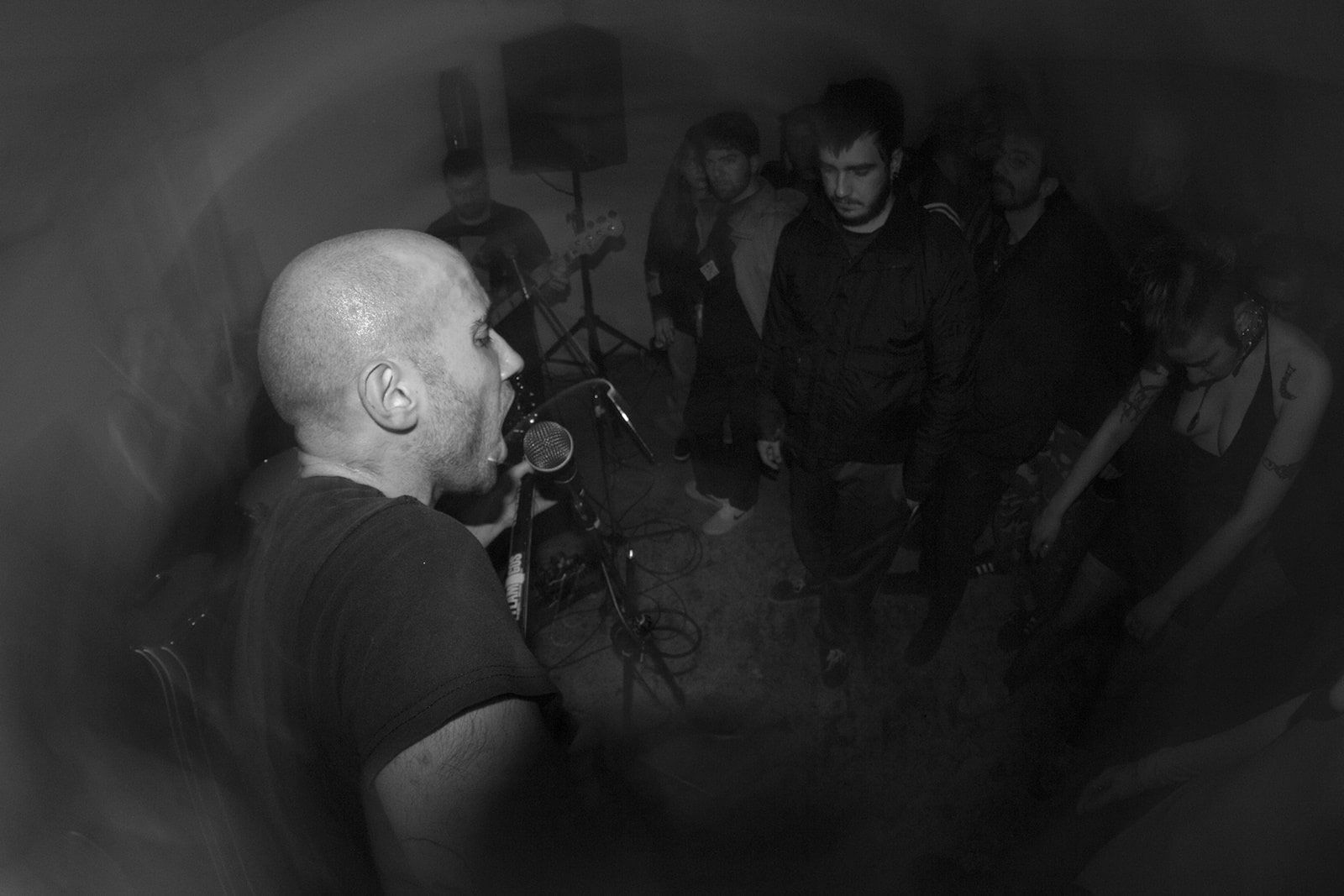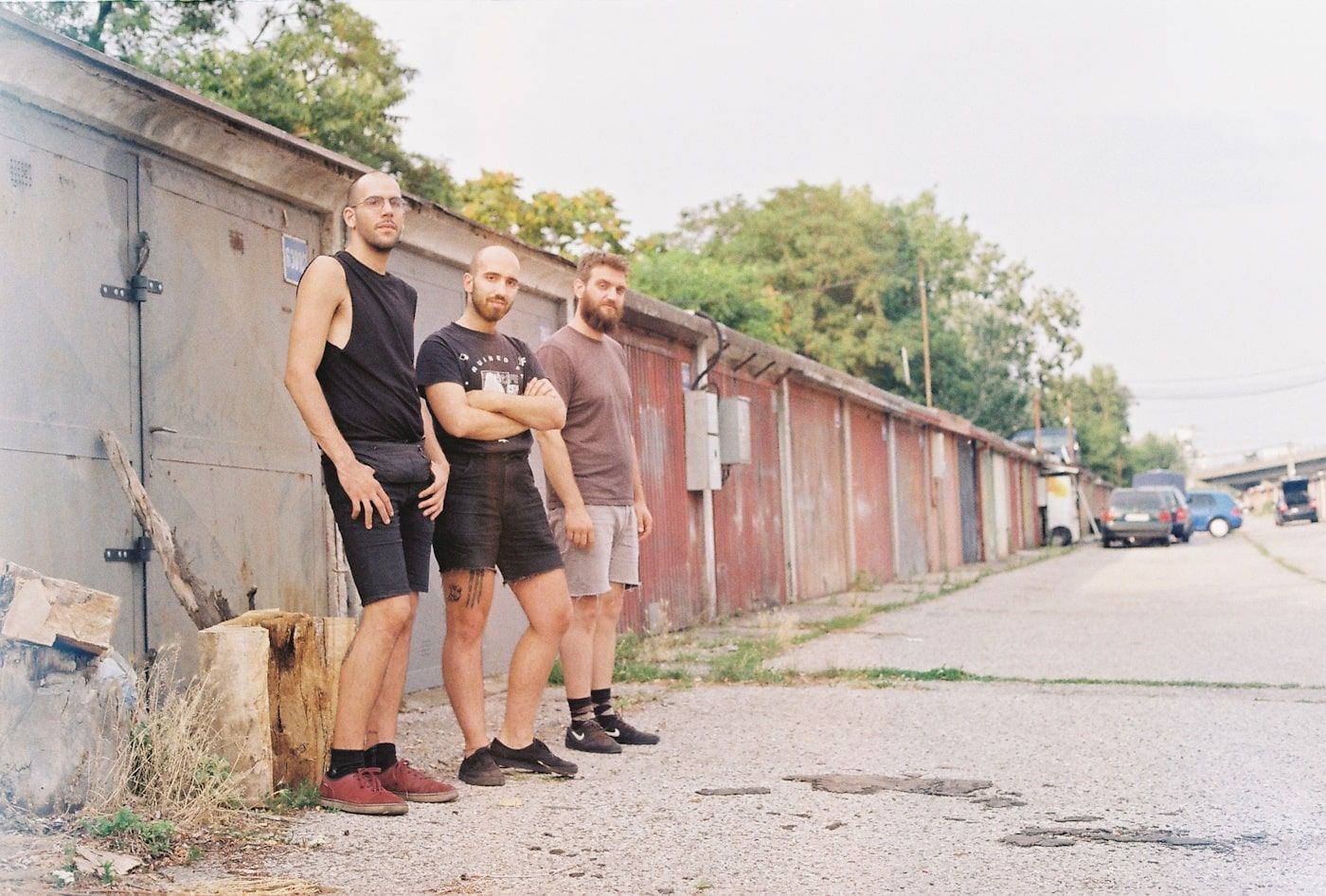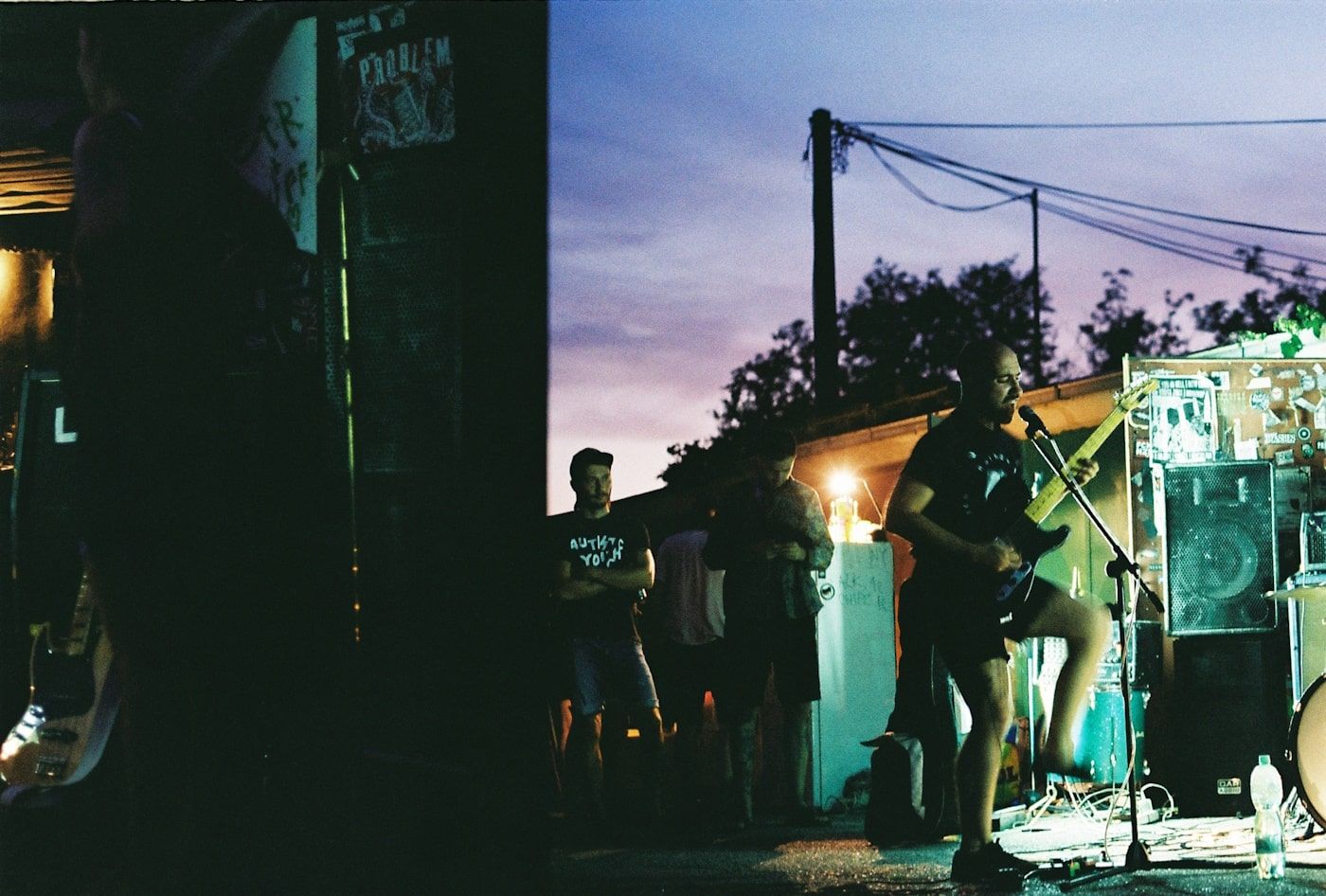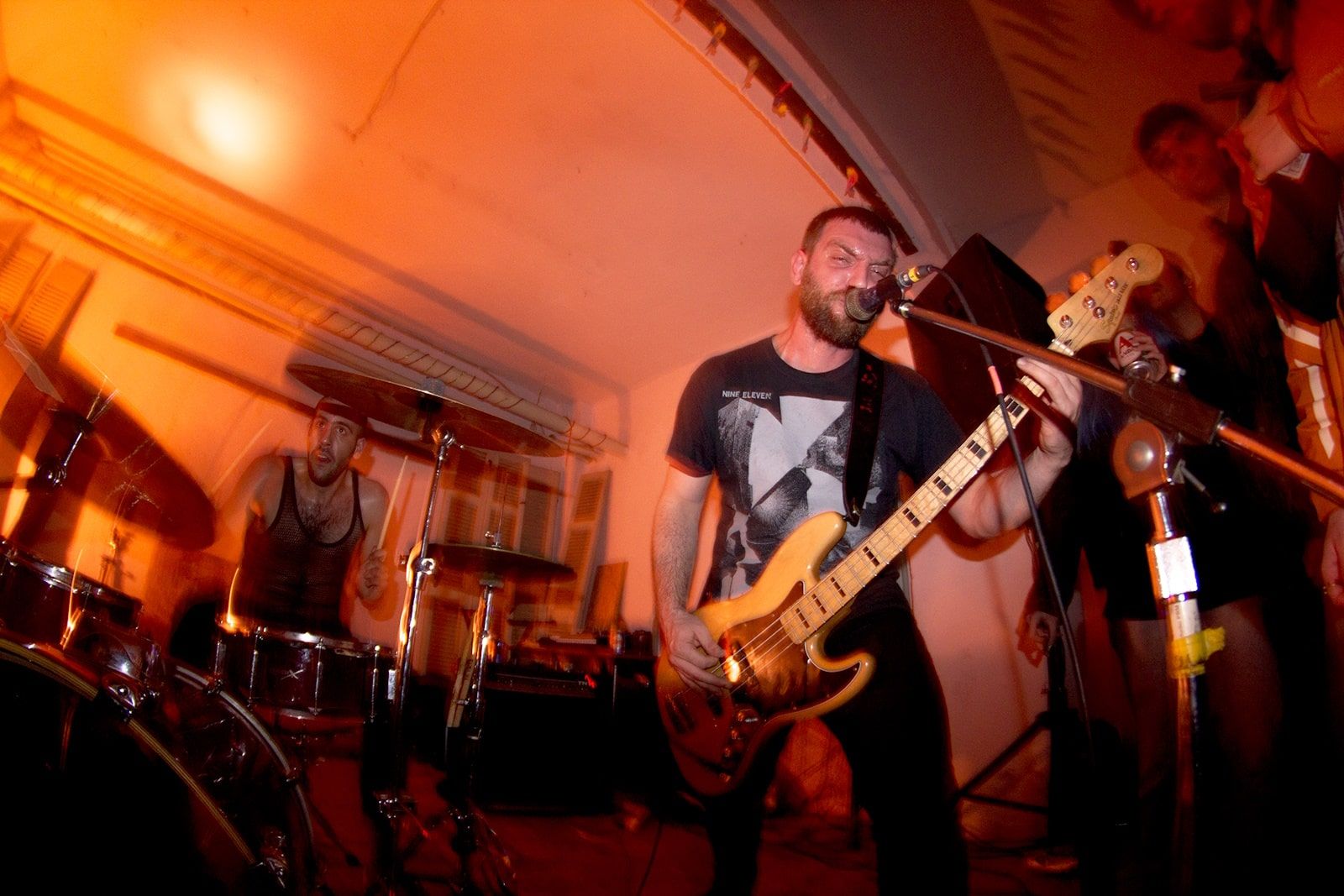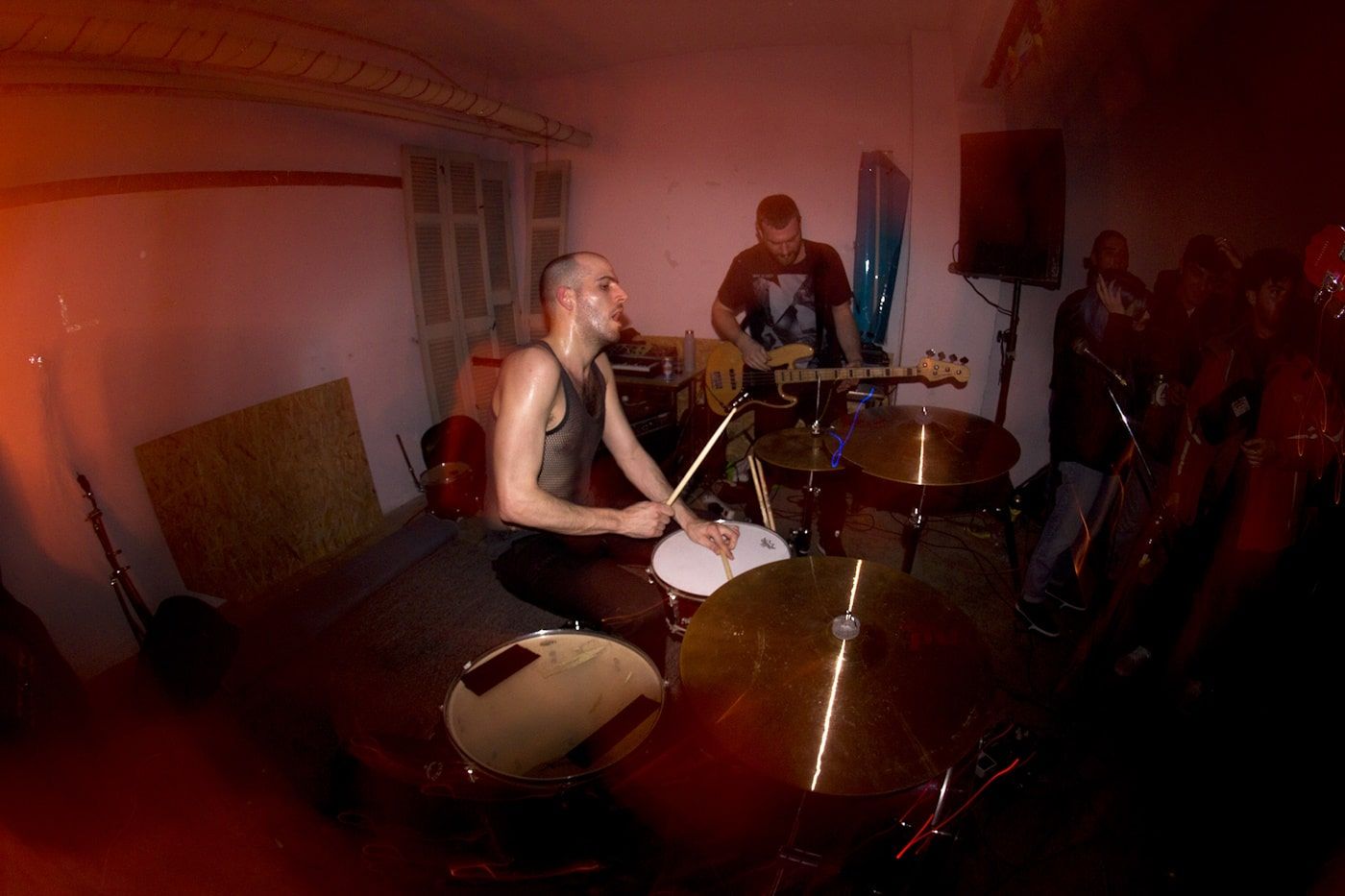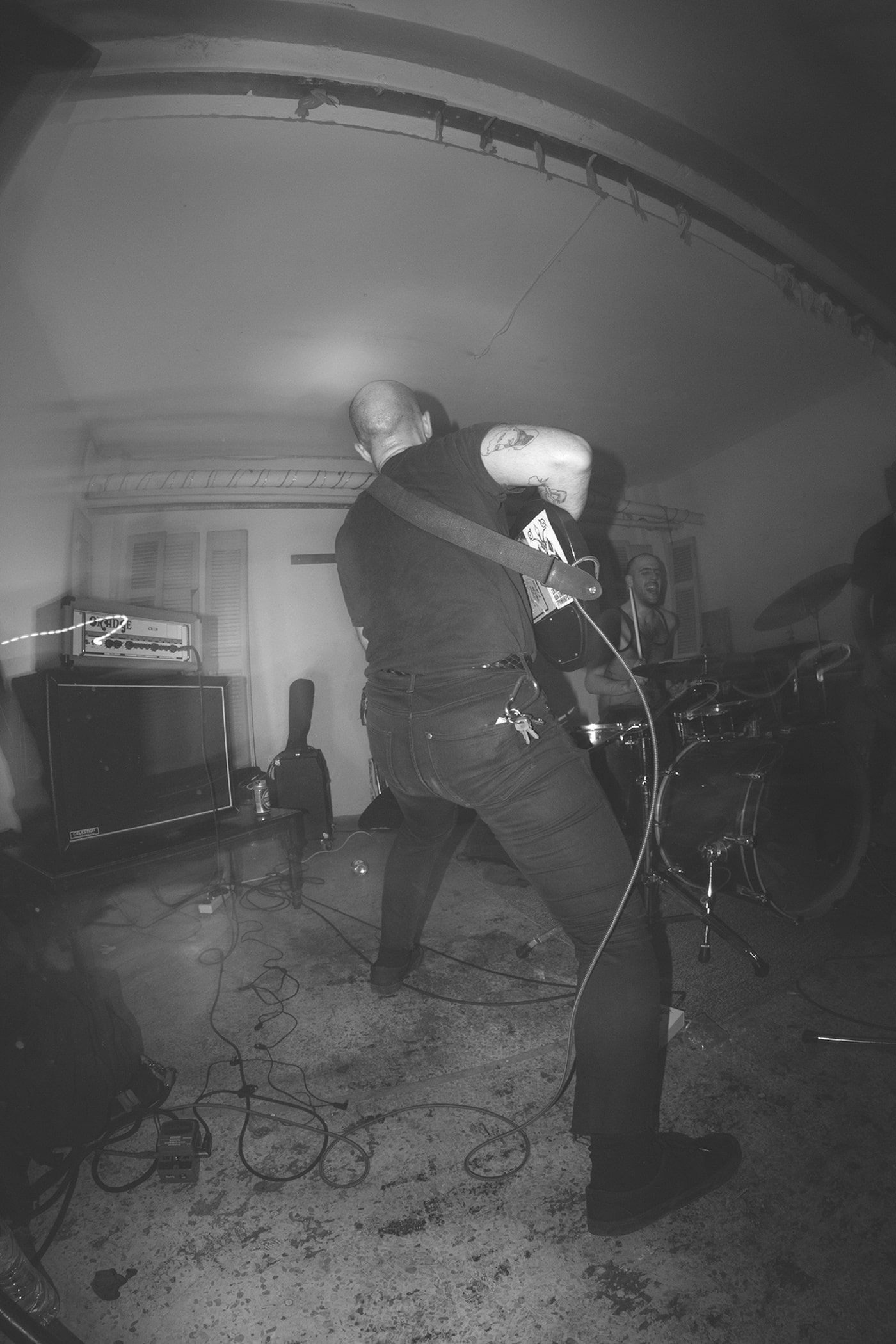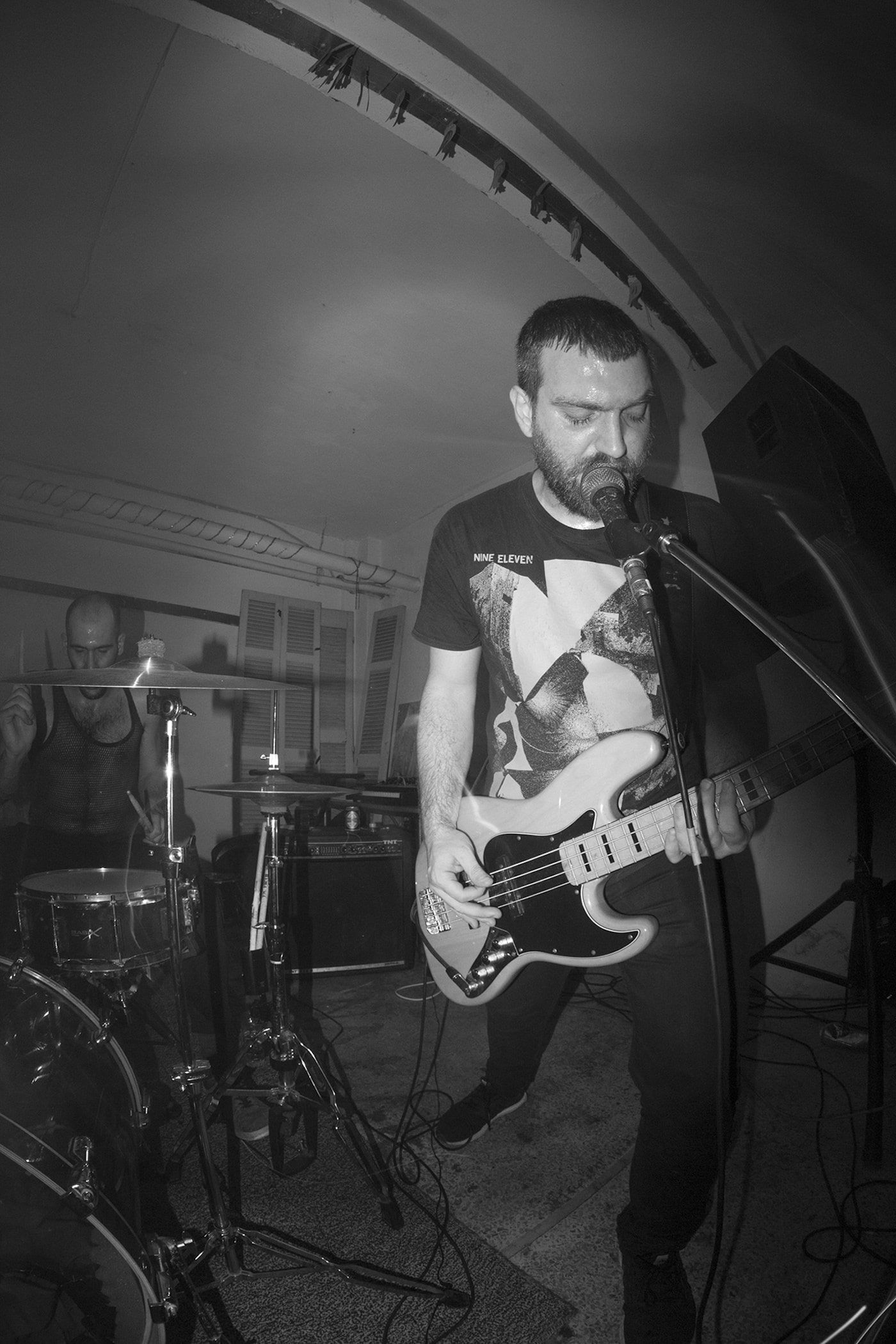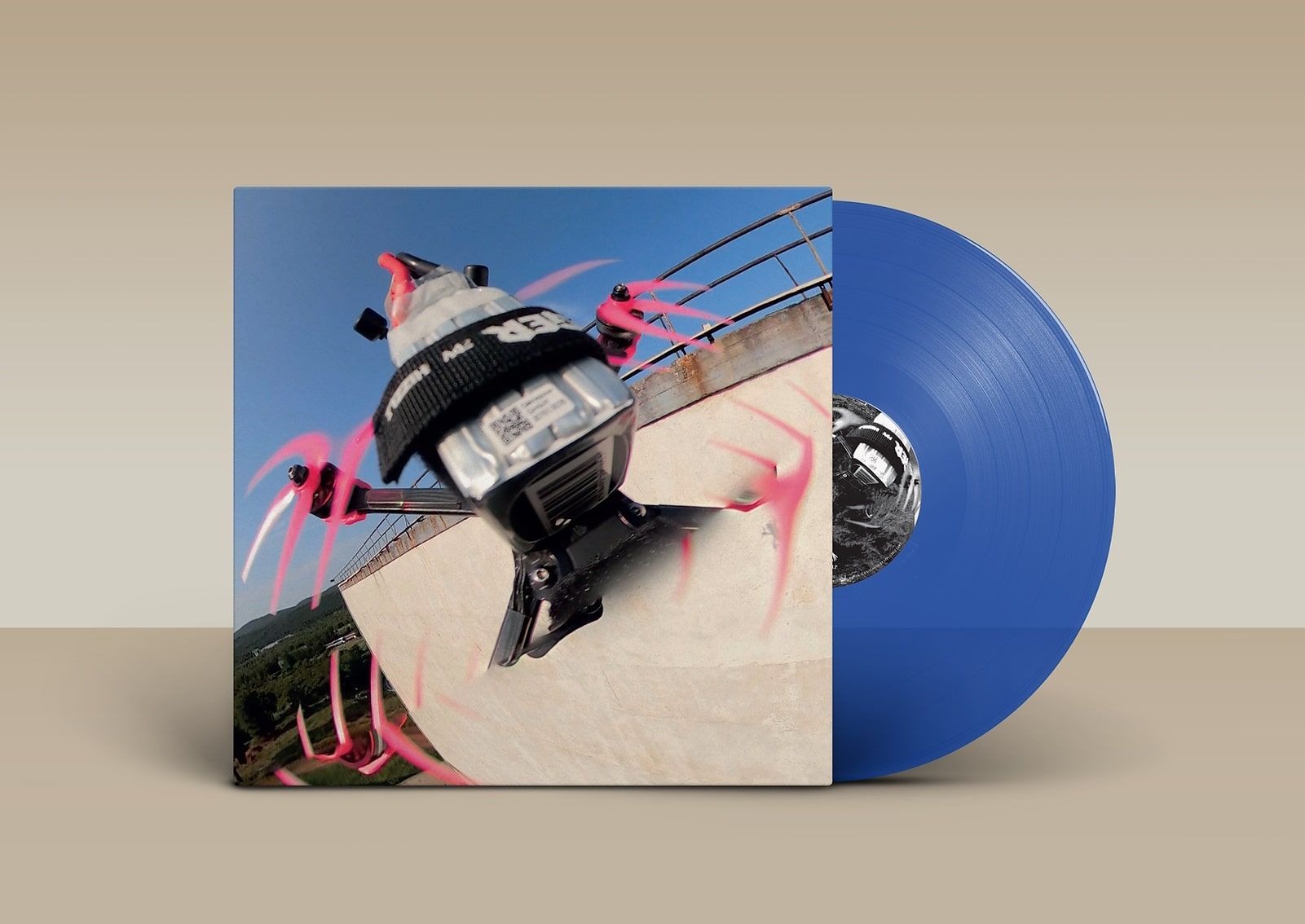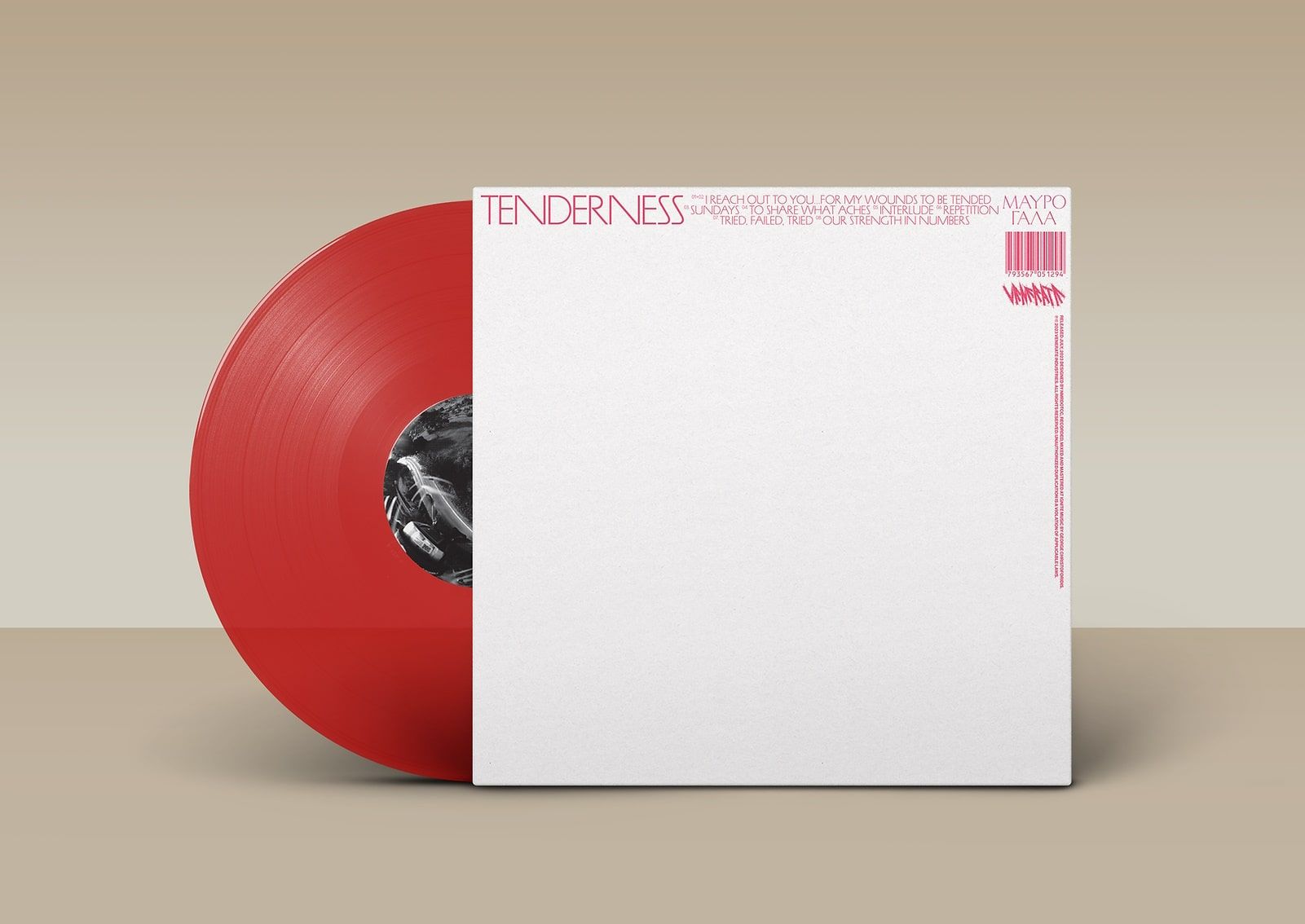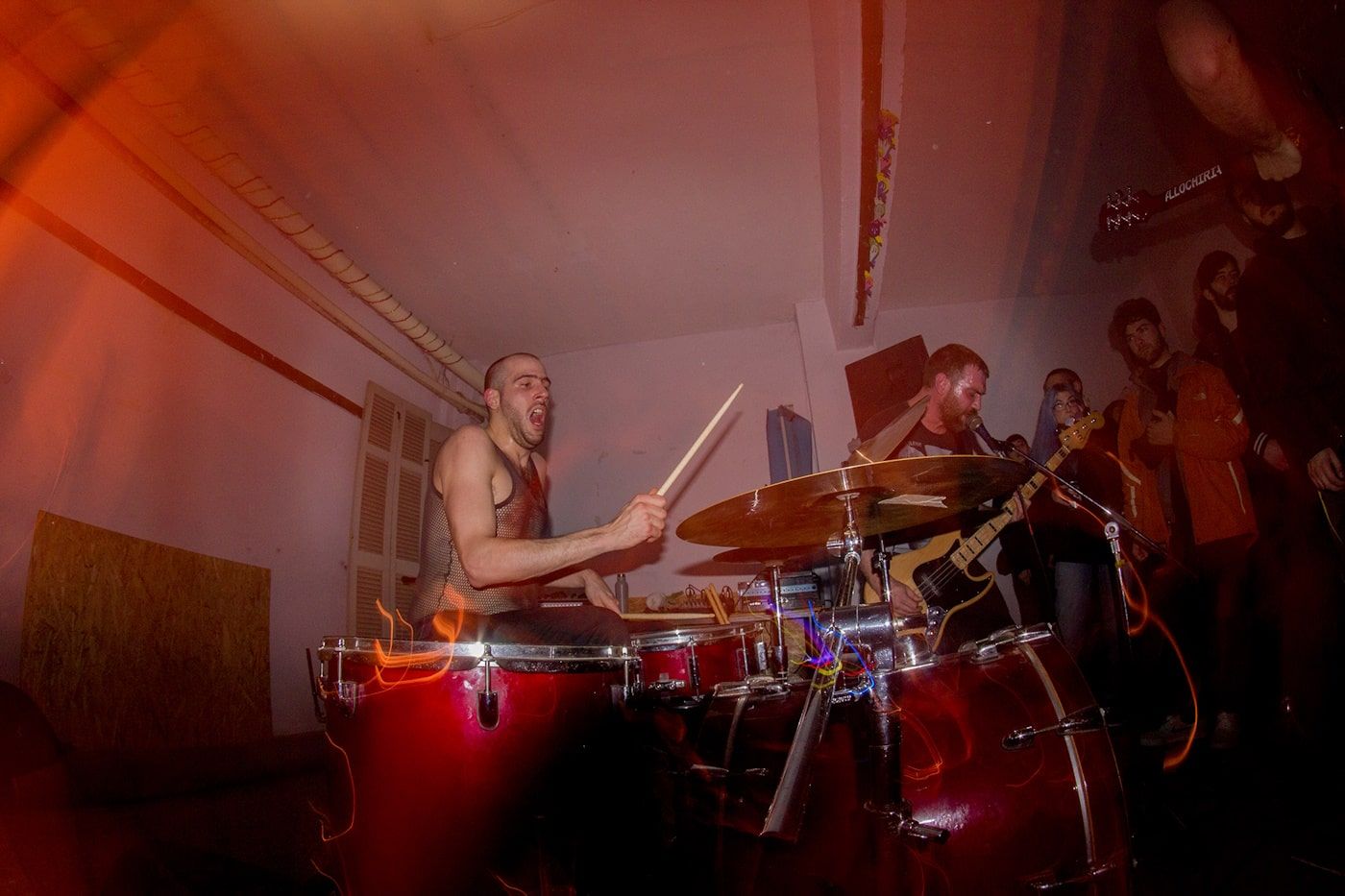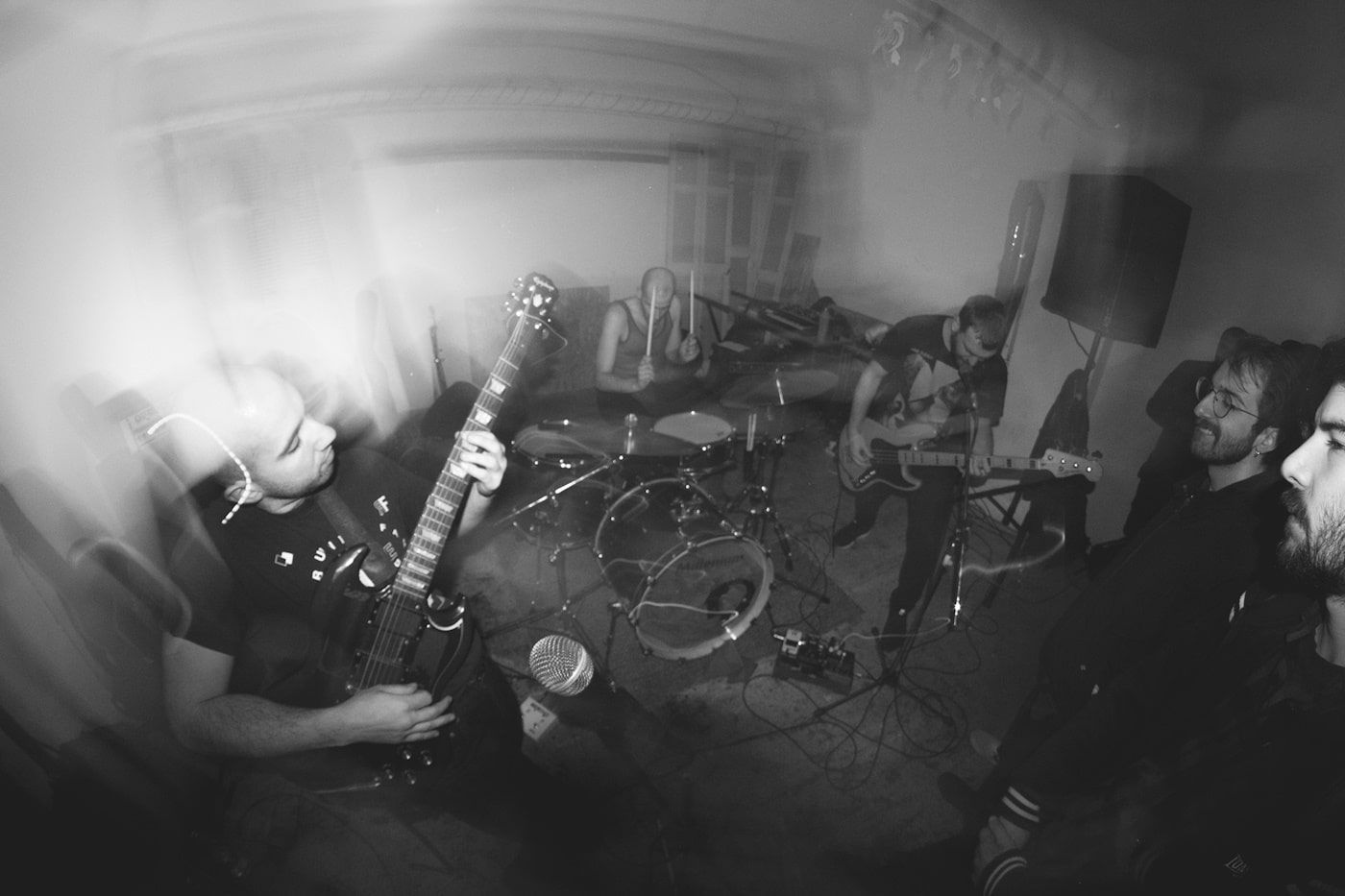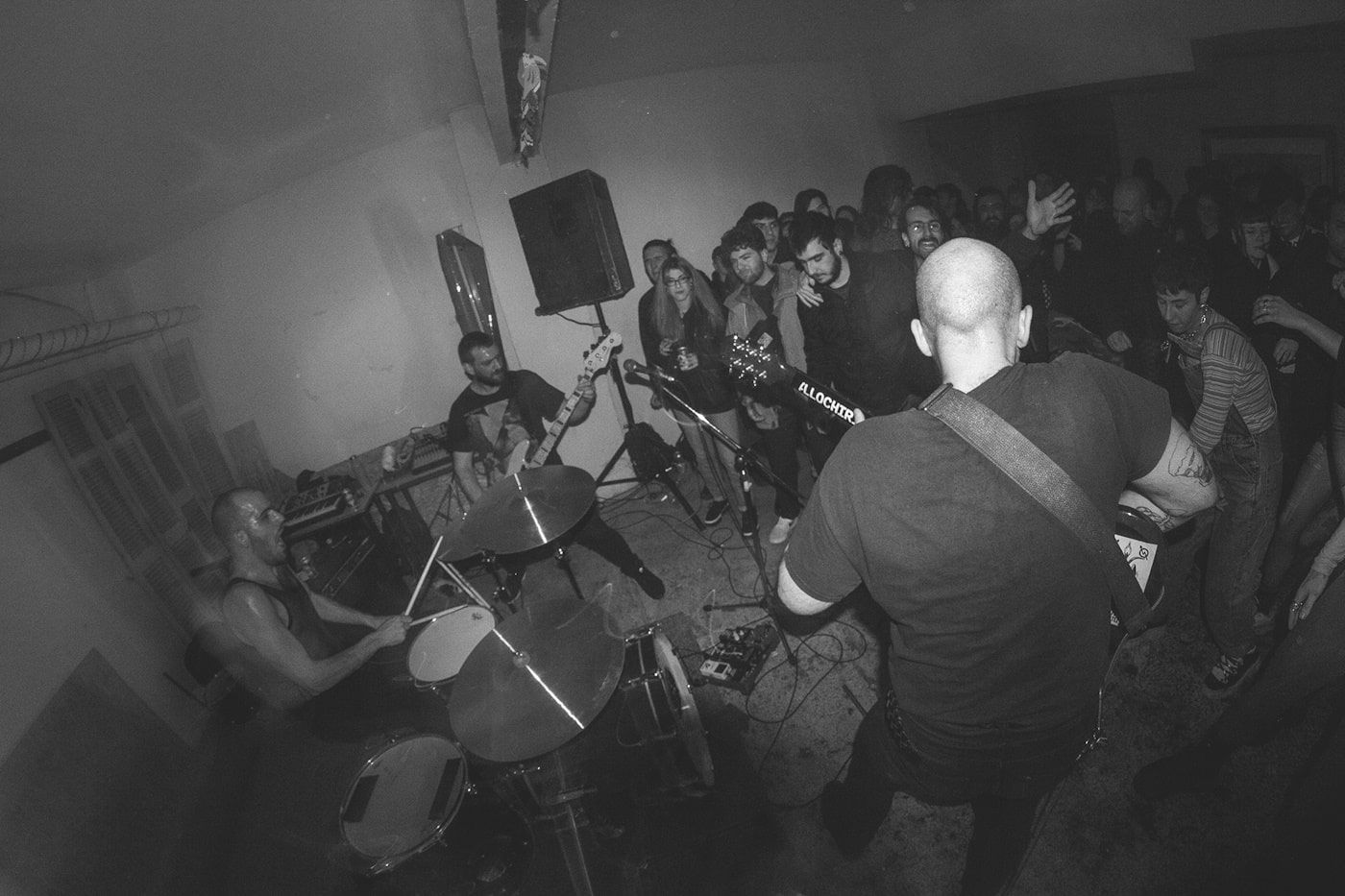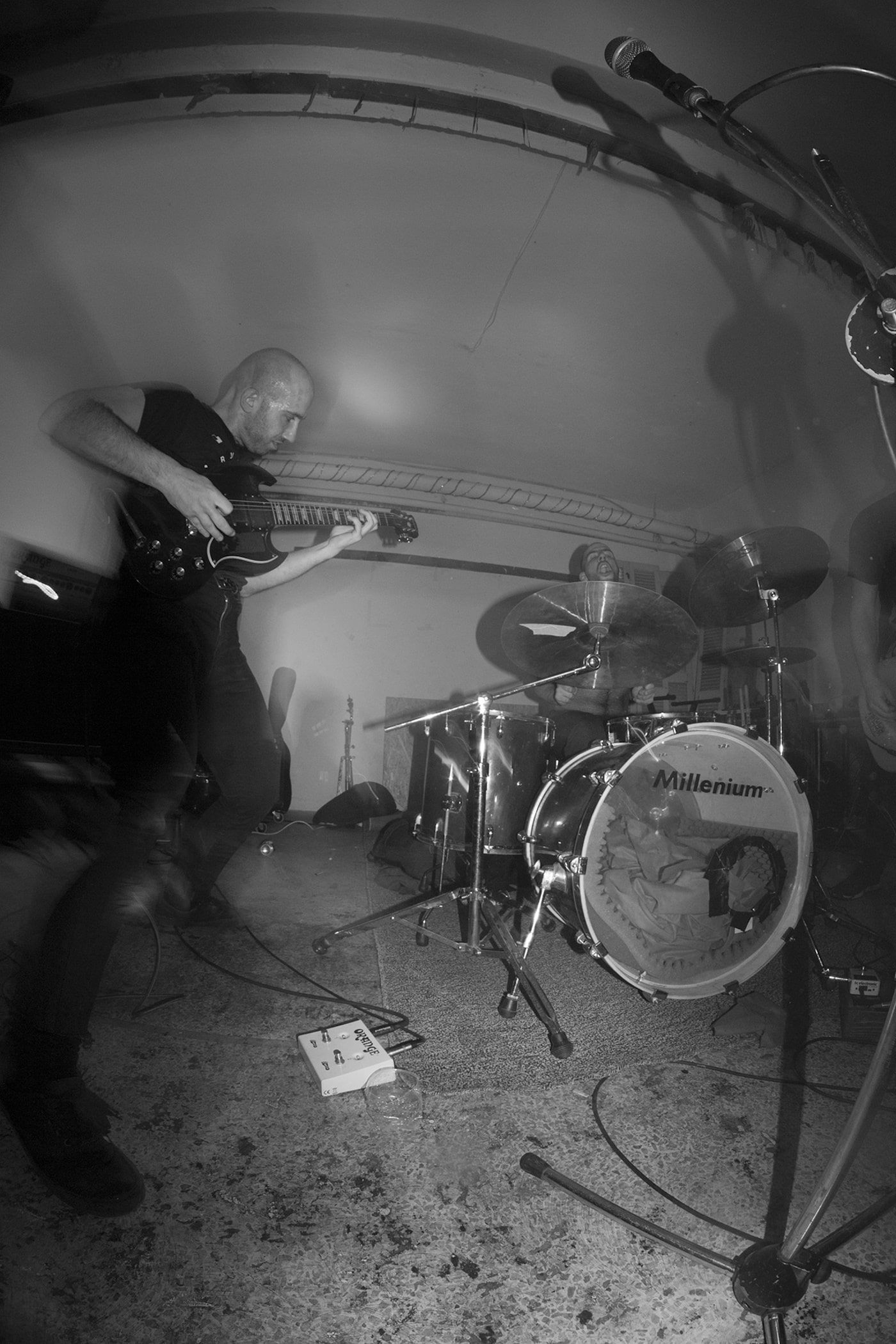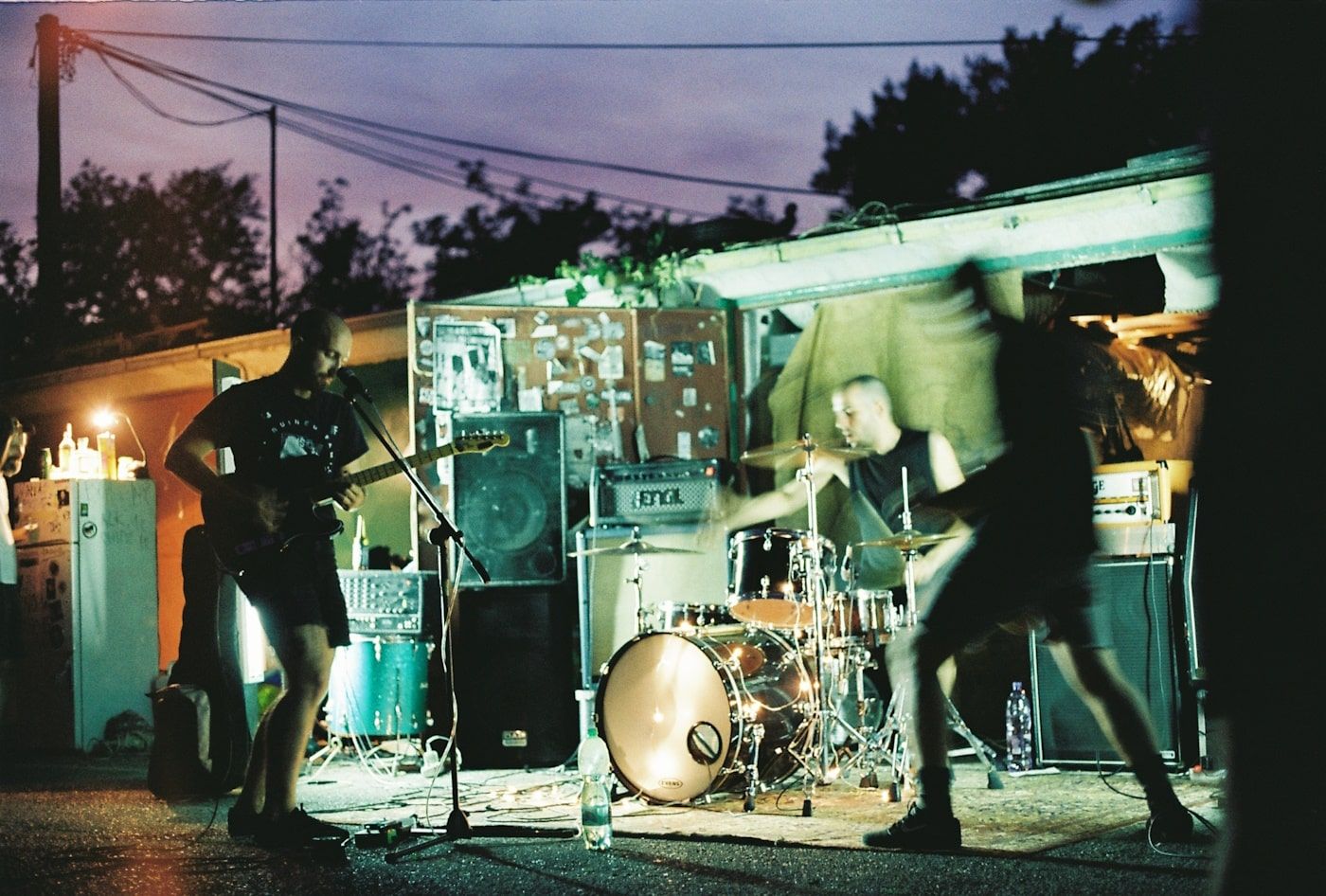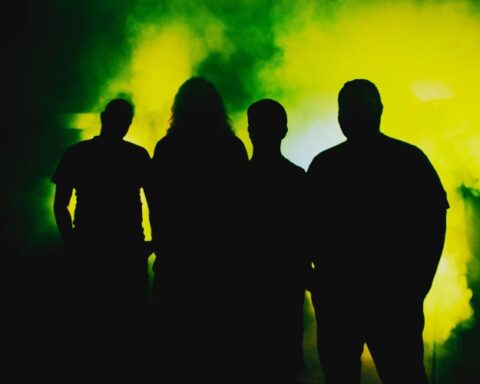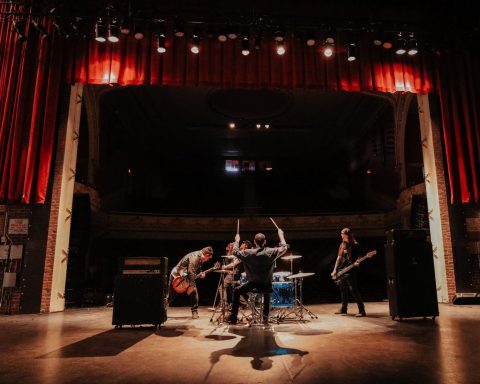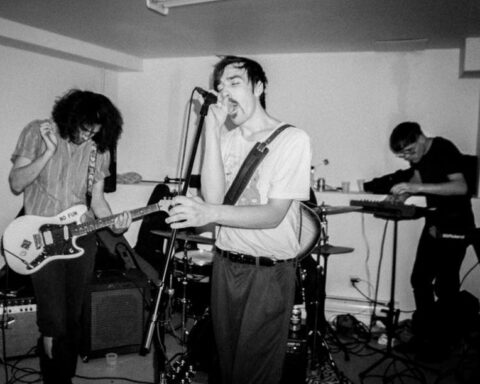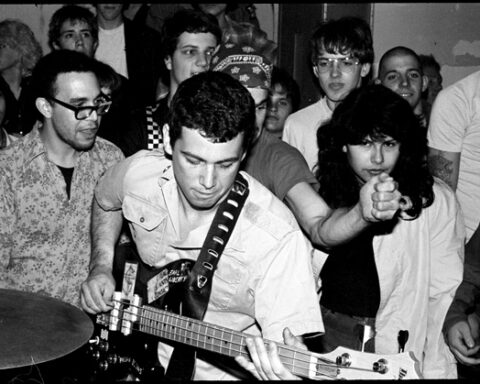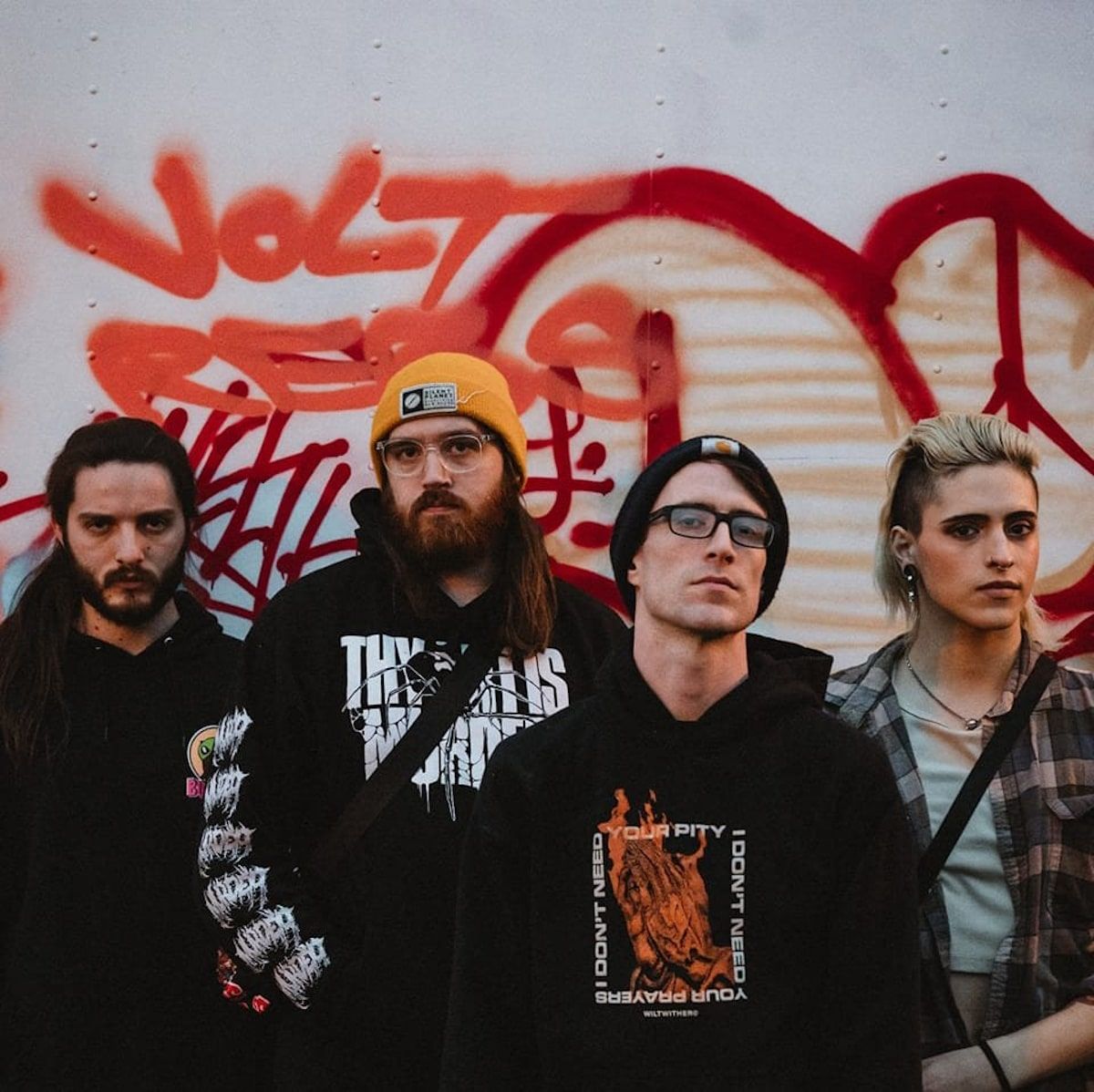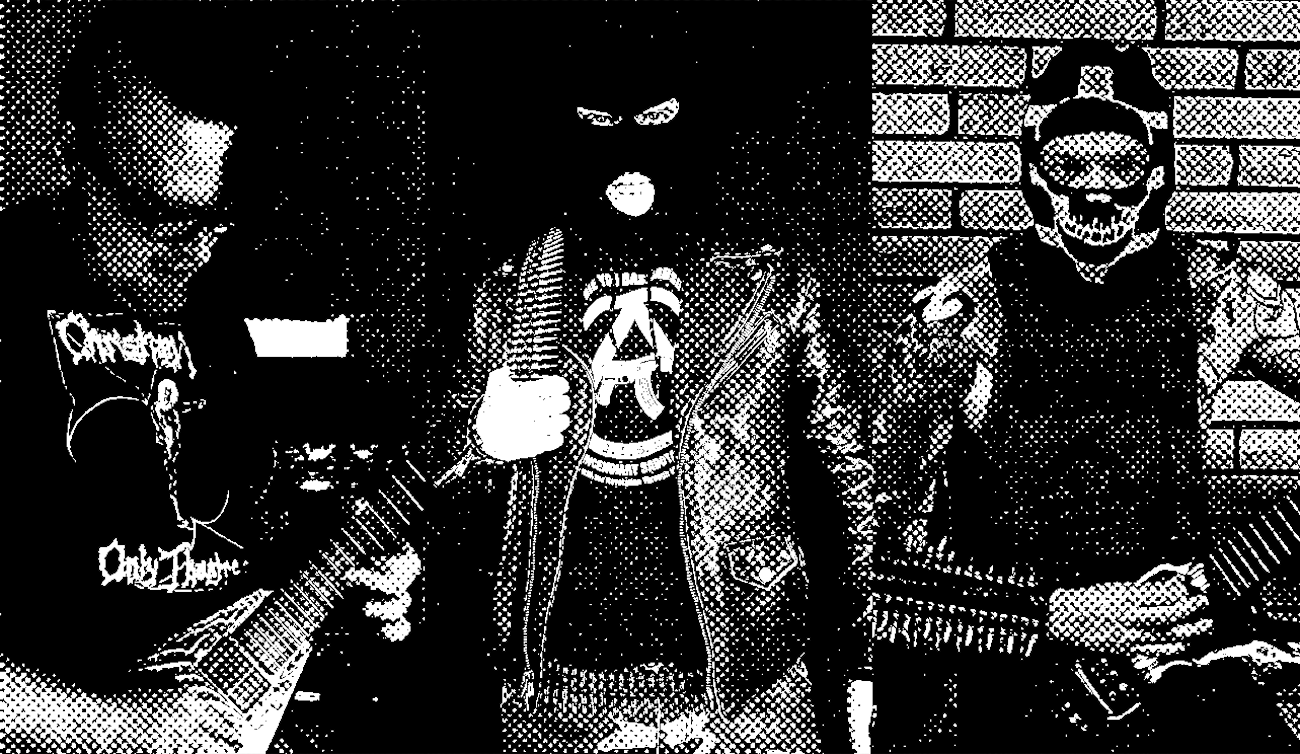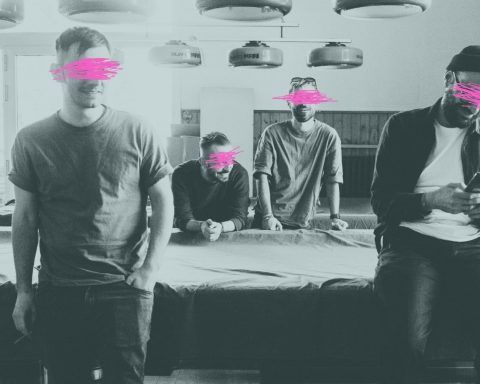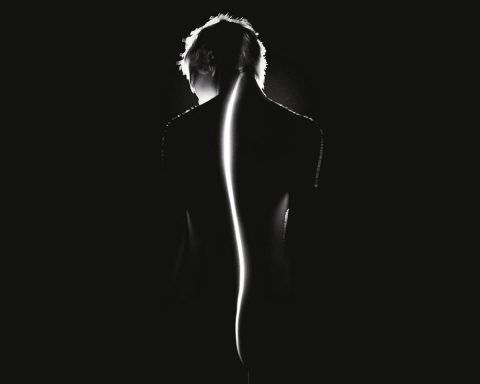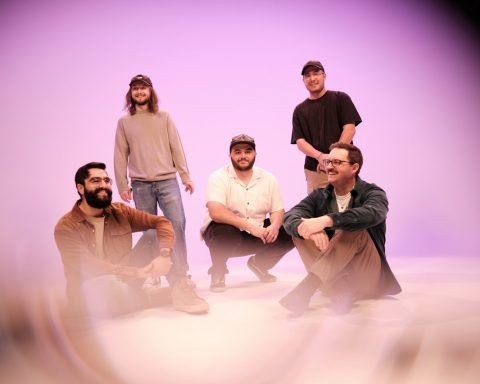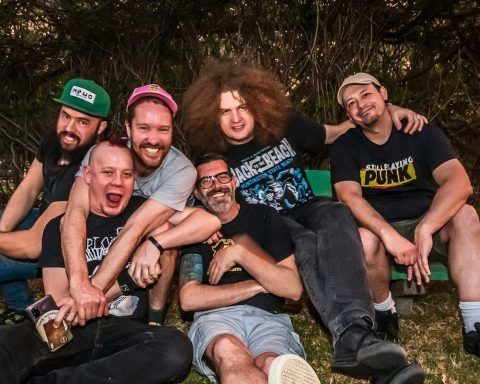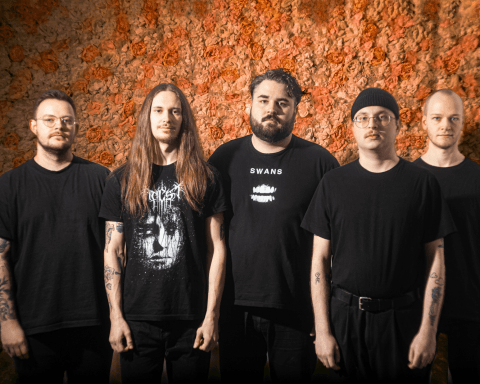It’s not every day you stumble across a musical endeavor that taps into the raw existentialism embodied by a poem about the Holocaust. Yet, here we find Mavro Gala, a band formed in Athens in 2015, borrowing its moniker from Paul Celan’s harrowing poem “Death Fugue.” This screamo/post-hardcore group navigates the tumultuous waters of life, post-financial crisis in Greece, using their music as a dissonant scream against the cacophony of systemic burdens.
Today, we’re pleased to give you the band’s new song and music video called “Sundays,” coming from their new album “Tenderness”, available for pre-order via Venerate Industries.
“Tenderness” is a mosaic of weariness and rebellion, with themes exploring bodies decaying under the yoke of work and cities transmogrifying into unrecognizable landscapes due to gentrification. In the words of the band, “as we grow older and our bodies grow weaker, the only thing we hold on to is our chosen families, amidst a city rapidly growing less familiar.”
Haris Z., Alex B., and Giannis G. make up Mavro Gala. Their sonic birth was catalyzed by a conversation between Giannis and Haris, feeling the urgency to create music that served as an antidote to the machismo-drenched hardcore scene. They looked back to the sonic restlessness and emotional tenderness of late ’90s screamo, describing it as “extremely violent music by wimpy, vulnerable kids.”
The band’s lineup has seen a bassist swap—Hector took his leave, and Alex came into play. Alex’s arrival altered the band’s musical terrain, injecting it with compositional maturity.
In our sit-down with the band, they delved into the creative undercurrents that inform their music. The upcoming album, “Tenderness”, reflects a deepening discontent with a city swallowed by post-gentrification nightmares, and its music translates the theme of “bodies worn down by work” into emotive screams.
They view music as a balm against the relentless grind of life. A stark contrast to their vocal advocacy for political change and acts of solidarity, in Athens’ DIY scene, their music avoids serving as a banner of protest, but more as an expressive vent.
Through touring in Greece and Europe, Mavro Gala have been exposed to a myriad of musical scenes. They recall their collaborations with Chronoboros and Νervous, amongst others, as heartwarming experiences. They don’t merely measure success by the stage they share with established bands like Unsane and Deaf Kids, but by their capacity for kindness and humility.
“𝐷𝑒𝑑𝑖𝑐𝑎𝑡𝑖𝑜𝑛 𝑡𝑜 𝑦𝑜𝑢𝑟 𝑐𝑟𝑎𝑓𝑡, 𝑘𝑖𝑛𝑑𝑛𝑒𝑠𝑠, 𝑎𝑛𝑑 ℎ𝑢𝑚𝑖𝑙𝑖𝑡𝑦 𝑔𝑜 𝑎 𝑙𝑜𝑛𝑔, 𝑙𝑜𝑛𝑔 𝑤𝑎𝑦, 𝑏𝑜𝑡ℎ 𝑖𝑛 𝑠𝑡𝑎𝑔𝑒 𝑝𝑟𝑒𝑠𝑒𝑛𝑐𝑒 𝑎𝑛𝑑 𝑖𝑛 𝑡ℎ𝑒 𝑟𝑒𝑙𝑎𝑡𝑖𝑜𝑛𝑠ℎ𝑖𝑝𝑠 𝑦𝑜𝑢 𝑏𝑢𝑖𝑙𝑑 𝑖𝑛𝑠𝑖𝑑𝑒 𝑡ℎ𝑒 𝑠𝑐𝑒𝑛𝑒.”
With the release of “Tenderness” on the horizon, the band looks forward to embracing new experiences and territories—sonic or otherwise. While the political and social landscapes seem to be in continuous fluctuation, the resolve of Mavro Gala remains steadfast—fueled by their collective sense of solidarity, political will, and ever-evolving independent artistry.
Check out our full interview below.
How does Paul Celan’s “Death Fugue,” a poem entrenched in the horrors of WWII, resonate with Mavro Gala’s ethos and musical direction?
The time we formed the band coincided with Giannis’ introduction to Paul Celan’s poems, and he was was completely in awe of the way Celan used language against itself, in a way.
‘Death Fugue’, in particular, is of course first and foremost about the Holocaust, but the concept of the repetitive, obligatory consumption of a substance that is supposed to be nourishing but has turned toxic resonated a lot with our post-December 2008 and post-financial crisis lives here in Greece.
What sparked the initial conversation between Giannis and Haris about forming a band in the spirit of late ’90s screamo? What did that era mean to you both?
To be honest, we both felt a little suffocated by the scene’s obsession with hardcore and crust’s more muscular and manly aesthetics (although it’s gotten much better since then). In ‘90s screamo and in bands like Orchid, for example, we found musical and aesthetic examples to be tenderer in approach and more ferocious in sonic results. Extremely violent music by wimpy, vulnerable kids. That gave us all the inspiration we needed.
You mentioned Hector’s early influence on bass; how did his departure and Alex’s entrance shape the band’s sonic landscape?
Hector was someone that helped our band a lot to become what it is today, and we’ll always cherish our beginnings and our first memories together.
Alex, both as a bassist and a vocalist, brought a lot of new ideas to the table and helped the band towards a much more accomplished and musical direction, composition-wise.
Could you walk us through the emotions and experiences you channeled when composing your first album on Venerate Industries, “TENDERNESS”?
There are two currents running through TENDERNESS: The first is the realization that as we grow older and our bodies grow weaker through time and work, the only thing that we have to hold on to are the people around us, our loved ones, our chosen families. This is coupled with the growing discontent towards a city that is rapidly growing less familiar and more alienating, through state intervention (for example the closing of squats), gentrification, rent hitting absurd highs etc.
The concept of “post-gentrification nightmare” in a city is heavy. How do you see your music as a form of protest or awareness against this?
We wouldn’t exactly term our stance as a protest or awareness campaign, there are political movements and groups doing that kind of work much more consistently and effectively. We can only share our own feelings in seeing a city we’ve loved so much getting hollowed from the inside out, squats, cultural centers and locals’ shops being replaced by overpriced ‘concept stores’, AirBnBs and luxury apartments. There’s been a push for years that now seems to come to fruition under our current government for the center of Athens to become a tourist haven – where our only place will be to work in its hotels and entertainment centers.
The artwork for your albums has always been striking. What was the story behind choosing NMR.CC for your recent album art?
Our relationship with Spiros and Giorgos, the people behind NMR.CC, goes back years, since we were both making our first steps in our respective fields. They’ve been behind the artwork of every release since our first LP, ‘άγχος’, and the main reason our collaboration continues and grows stronger over the years is the same reason they have been growing so successful and acclaimed with each of their works: they have a way of being completely attuned to what you’re describing to them while finding ways to go completely leftfield on it, to insert their own associations and influences, which in the beginning may seem surprising, but in the end always make their own special kind of sense.
For ‘TENDERNESS’, our directions were really simple: apart from the concept of the album, we just said we wanted a more striking, more ‘pop’ approach. The ideas they came up for the artwork and the general aesthetic of the album completely encapsulate the mix of relief, alienation, anguish and brightness that we feel are at the core of ‘TENDERNESS’.
How does George Christoforidis’ touch in recording, mixing, and mastering add or transform Mavro Gala’s raw sound?
We cannot emphasize enough the speed and efficiency of Giorgos’ process and we can’t overstate the effect his advice and ear have on our sound. Since we started working with him, he always understands what we’re aiming for and employs every tool in his belt to coax the material towards that direction, mixed with a healthy, necessary dose of his own view on the music and what it should sound like.
How do you balance the need for creative experimentation with the core identity of Mavro Gala?
We wouldn’t say we’ve found ourselves, until now at least, needing to keep any kind of balance. Each step we take with every new album comes organically and naturally, always informed by our moods and musical influences during that time.
How do you translate the theme of “bodies worn down by work” into sonic energy and emotive screams?
For us, it is very important that we find, through music, a way out of an everyday life that is many times unbearable. We’ve all worked in jobs that destroyed either our bodies, our souls or both, and the only way we had to combat this continuous strain and stress was finding each other in band practice, or a live show or a tour, as a healing process. A fierce sonic exodus to escape our groundhog days.
You’ve been heavily involved in Athens’ DIY scene. Can you share some memorable experiences that deeply affected you or shaped the band’s journey?
Both as individuals and as a band, we’ve always focused on being part of a scene that had things to offer, either through political discourse or through acts of solidarity. We have all been members of collectives that tried to transform the politics we’ve talked about into action, and as a band we’ve always preferred playing in places where the profits would help people and goals that we think are important. This formed us and carved our way forward.
Instead of memorable events, we want to say we’re always remembering people: those that invited us to a city abroad, that fed us, offered us a place to sleep, people that shared our beliefs and invited us to a solidarity event, for example. Those relationships made us into what we are more than anything else.
Touring across Greece and Europe must have exposed you to a myriad of musical scenes. Any particularly inspiring moments or collaborations?
As a first thought, when we think of collaborations, we think of the bands Chronoboros and Νervous. In different points in our history, we did things together like our first Greek and European tours that we’ll always hold in our hearts.
The truth is that both in Greece and abroad we’ve mostly played with hardcore and punk bands, but it’s very important for us to try and push those barriers between genres in the live shows we’re playing or organizing, like bringing together trap, hip hop and noise and electronic artists for example.
What’s the most intense audience reaction you’ve ever had, and how did it affect the band?
The most intense reaction we’ve had was probably in our European tour with Kalpa. We were playing a squat in Groningen, and it was the last live show that would happen in the squat. Both our set and Kalpa’s were quite short, so people started demanding (in various stages of politeness) we play more, and we started improvising, mixing members of the bands and instruments for a large part of the night. This was something that quite pushed us outside our comfort zone, improvising with people we knew but never did anything like that together before.
You’ve opened for bands like Unsane and Deaf Kids. What were some of the key takeaways from sharing stages with such seasoned artists?
The same goes for any band we’ve shared the stage with, famous or not – dedication to your craft, kindness and humility goes a long, long way, both in stage presence and in the relationships you build inside the scene.
After “TENDERNESS,” what new territories—thematic or sonic—are Mavro Gala interested in exploring next?
For the time being we want to play ‘TENDERNESS’ live as much as we can, in as many places as possible, so when we start thinking about our next project we’ll be full of new experiences and moments.
Any dream locations or festivals where you’d like to perform?
Our dream festival would certainly be Fluff Fest, though unfortunately we didn’t manage to play there and last year’s was the last one ever. We would very much like to go on tour further abroad, in countries like Japan, for example.
Now though, with a new LP in our hands, we just can’t wait to play in as many places and festivals possible.
As a band that began in the spirit of ’90s screamo, what message would you like to impart to younger bands following in your footsteps?
It seems we’re not a young band anymore, hah! We don’t think we’re in any place to offer advice or particular messages, just to share the only way we know how to work, or at least trying to: with as less ego as possible, always remembering the only thing keeping our scenes alive is our collective sense of solidarity, political will, dedication and kindness towards each other.
Want to keep the beat going?
IDIOTEQ is a one-man DIY operation, tirelessly spotlighting the local cultural scenes and independent bands that often go unreported elsewhere. Born in the early 00s, this platform has been committed to giving hard-working artists the high-quality coverage they truly deserve.
No ads, no distractions—just pure inspiration and a genuine focus on independent artists and their stories.
Please consider helping keep IDIOTEQ ad-free and in tune with the indie scene by donating today.
DONATE via PayPal 𝗈𝗋 SUPPORT via Patreon
100% of the funds collected go toward maintaining and improving this magazine. Every contribution, however big or small, is super valuable.
Your support ensures that we continue to be a place where you can discover, learn, and get inspired, without any advertising noise. Thank you for being a part of this musical journey.



